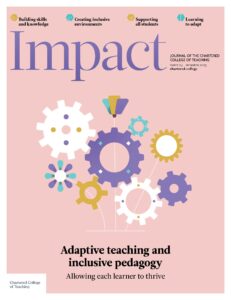LAURA HORTON, PASTORAL SUPPORT MANAGER, CENTRAL FOUNDATION GIRLS’ SCHOOL, UK
This case study examines the design and implementation of an enhanced pastoral support system at a mainstream inner-city state secondary school. The strategy aims to encourage adaptive, inclusive practice around social, emotional and mental health (SEMH) needs, looking beyond the traditional scope of special educational needs and disabilities (SEND). It aims for wider social and emotional inclusion in a secondary school context, with a strong emphasis on Quality First Teaching and without using full-time internal alternative provision.
The end product: Student Support Services
The result of this strategy was the crystallisation of the Student Support Services (SSS) department. SSS provides regular one-on-one or small-group interventions to students with SEMH needs. Referrals are made through an online form completed by staff, and each referral is triaged to ensure that it is matched with the most appro
Join us or sign in now to view the rest of this page
You're viewing this site as a guest, which only allows you to view a limited amount of content.
To view this page and get access to all our resources, join the Chartered College of Teaching (it's free for trainee teachers and half price for ECTs) or log in if you're already a member.











